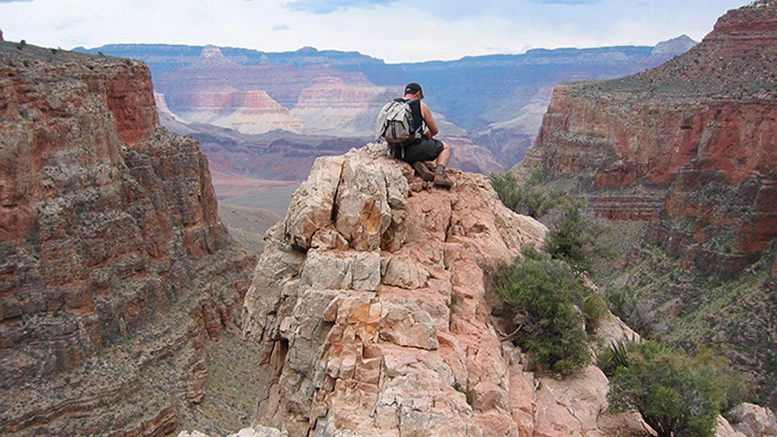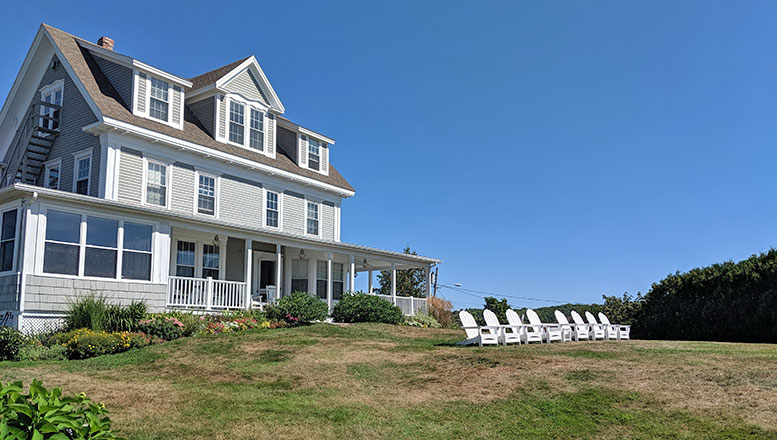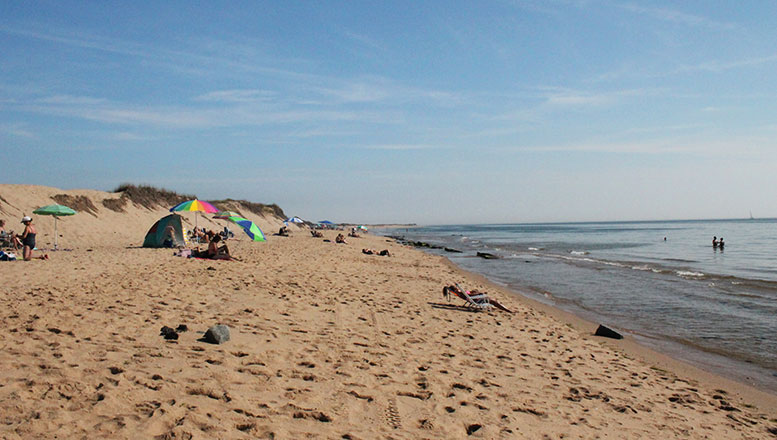It’s ok to imagine what your next trip will look like, in the face of this coronavirus pandemic
By: Andrew Collins/TRT Travel Columnist—
Although nobody can predict with any certainty what the travel landscape will look like in a few months, you can count on two things. First, at some point, people will travel again, and in all likelihood, with a renewed sense of enthusiasm.
Second, you know that definitive “all’s clear” alert we’re all used to receiving when a dangerous storm has passed or a menacing shark has left a swimming area? In the case of our current COVID-19 travel shutdown, that single announcement isn’t going to happen. There won’t be one exact day or even month when leisure travel resumes to complete normalcy. Instead, depending on myriad factors, different countries, regions, and even specific communities will lift coronavirus restrictions at different times, and likely in graduated steps.
That’s why it might be helpful, especially if you’re the type of devout globetrotter who spends your days at home gazing wistfully at all the locations you’ve starred on Google Maps, to create two lists of future travel experiences. First, those grand splurges to faraway places that involve long plane rides, complex itineraries, a passport, and maybe even—gasp—boarding a cruise ship; and second, those simpler and nearer adventures that can be pulled off with relatively little planning but that will satisfy your pent-up desire to go somewhere … anywhere … as soon as it’s safe to.
Creating a fantasy travel list can help satisfy our need to dream big, even if we need to allow some time to pass before we’re able to undertake these ambitious—and especially international—adventures. Developing a realistic list of places we can potentially visit in the foreseeable future can help remind us that we will get through this situation, and plenty of fun and excitement awaits us on the other side.
Go Your Own Way
If you’re in a relationship and will have been holed up with your love (or loves) for several weeks by the time you embark on your next trip, it might be worth thinking about going away alone, or with someone other than your partner.
No, I’m not suggesting that you drain what’s left of your rainy-day fund and sneak off alone to a spa resort in Sedona. But if you always travel with your partner—whether because you can’t get enough of each other or because vacations provide your only real opportunities to spend quality time together—this could be a good time to consider traveling apart, even if just for a long weekend. Here’s the chance to finally go on that backcountry camping trip that elicits an involuntary flinch from your partner every time you mention it, or to give your love a few days to explore every damn nook and cranny of every Smithsonian museum—an activity that, truth be told, would make your eyes bleed.
Having different tastes and occasionally pursuing them independently or with other friends isn’t a sign of strife or incompatibility. It’s an opportunity to give each other the precious gift of space, and to remember all the reasons you chose this person to shelter-in-place with in the first place.
Plan an Adventure With Friends
Just as much as you may be ready for some time apart from your cohabitant, it’s also likely that you’re dearly missing certain friends and family members you’ve been unable to hang out with for ages, perhaps even long before the term COVID-19 entered our everyday vernacular. Now is an excellent time to share your travel dreams with those special people you’re longing to see again. What better way to reconnect than by renting a cabin, house, or apartment someplace you’ve all been wanting to go?
Vacation rental agencies like Airbnb and Vacasa are terrific resources for planning group getaways. These companies and many others are currently offering flexible change policies for the short term.
Looking farther ahead, in the case of Airbnb, many hosts offer their own very flexible cancellation policies, allowing full refunds up until two weeks before arrival, for example, and partial refunds thereafter. You may be able to help a struggling Airbnb owner cover a mortgage or other expenses by booking now while still retaining the freedom to cancel later if necessary.
Pay It Forward
Throughout this shutdown, many travel-related enterprises are desperately trying to keep afloat, and to retain as many employees as possible. Small businesses are especially vulnerable: bed and breakfasts and inns, tour guides and outfitters, independently owned museums and cultural attractions, gift shops and galleries, and virtually every kind of food-and-beverage purveyor, from coffee roasters and winemakers to food trucks and neighborhood bistros.
If there’s a favorite business you can’t wait to visit again, think about buying a gift certificate. An increasing number of companies sell them online, and others are happy to work with you by phone or e-mail. Many retailers—from craft breweries to travel-gear shops to gourmet food stores—will deliver goods to your home, and some are waiving shipping fees on larger purchases or launching special promotions.
Some inns and restaurants have begun offering special deals on gift certificates, and guaranteeing that they’ll never expire. A growing number of restaurants now sell gift certificate “bonds”—these allow customers to purchase a certificate today and then redeem it later at a higher value. For a list of participating restaurants, visit the Dining Bonds Initiative. Some examples: At hip Pinks Cantina in New York City’s East Village, you can buy a gift card for a limited time for 25% off, while Taste on Melrose in West Hollywood is offering $120 gift cards for $100. The Topside Inn in Boothbay Harbor, Maine sells “vacation bonds,” the value of which increases the later you redeem them. For example, purchase a $500 certificate today, and you can redeem it for $525 later in 2020, or $625 in 2022.
Museums, nature preserves, performing arts companies, and other organizations with limited funding—especially nonprofits—can also use your support. Buying an annual museum membership or a seasonal theater or opera subscription today is a terrific way to help your favorite cultural institution remain solvent and to motivate yourself to visit more regularly in the future.
Of course, if you’re even slightly concerned right now about covering your immediate expenses, it’s best to sit tight before buying gift certificates or making donations. Adding to your financial anxiety, even as an act of giving, isn’t in your or anybody else’s best interest. But, you can still help keep local businesses going through this difficult time, even just by sending a note or posting a comment on social media mentioning how much you appreciate a particular inn or cafe or boutique, and that you look forward to buying their goods and services again once they reopen, and you have the means to do so. If a business owner is having doubts about when and if to reopen after weeks of closure, seeing concrete evidence that customers are eager to return may just make the difference. If nothing else, anybody struggling right now will appreciate a few words of encouragement.
Get Outside (With One Big Caveat)
Yes, fresh air and communing with nature can be emotionally beneficial right now. But you’re not helping to reduce the spread of coronavirus if you’re hiking or picnicking with a group of buddies or you’re going places already crawling with visitors. This isn’t the time to drive to the top of Cadillac Mountain in Acadia National Park (which, as of this writing, is closed to traffic), and if you’re thinking of lazing on the beach, check first to see if it’s open, and maintain that critical 6-foot distance from others if you go (or use that place’s mask guidelines, if in place). Cape Cod’s Herring Cove Beach is open, Chicago’s LGBTQ-popular Osterman Beach is closed, the Grand Canyon’s South Rim is open, Vancouver, BC’s Stanley Park is open, but their parking lots are closed. This is an ongoing situation that’s changing daily, sometimes hourly.
Just because a park is open, it doesn’t mean it’s a good idea to go. If you’re venturing out to a park or preserve, be smart about it. Choose parks, or sections of parks, that are quieter and where you can easily maintain social distancing. You’ll likely encounter fewer people early in the morning or late in the day. And lesser-known state and even national parks and monuments—magical places like Oregon’s Cascade-Siskiyou National Monument and Vermont’s Moosalamoo National Recreation Area—offer spectacular scenery, calming tranquility, and plenty of elbow room.
Finally, know your abilities and assess the conditions around you, sticking with easier adventures for the time being. First responders are overwhelmed right now and may not be able to assist you if you’re hurt or trapped in rugged and remote terrain or swimming in a rough surf.
Load up the Car
Fuel prices are expected to remain relatively low throughout 2020, and although you shouldn’t treat this situation as permission to clog up the freeways with your gas-guzzling ’77 Ford Bronco, this could be a good year to plan that fall-foliage drive through New Hampshire or Rocky Mountain road trip you’ve been dreaming about for years. Car adventures can be a safer way to travel while social-distancing measures are in place, and back roads can lead us to remote, stunning places and out-of-the-way cabins and campsites.
Don’t Be a Pioneer
The LGBTQ community has a long history of assessing risk and carrying on in the face of adversity. Having learned to manage the ongoing threat of spreading HIV, many of us have become experts at balancing our need to lead joyful, fulfilling lives with our commitment to personal and community safety. And queer folks have often been at the forefront when it comes to political activism, settling in neighborhoods and communities that others have given up on, and even resuming our travels again after major crises, such as 9/11 and recent economic recessions.
The threat from Coronavirus, however—and the importance of “flattening the curve”—is unique in our lifetime. By all means, when it’s safe to begin traveling again, go for it. Explore the world with “gusto,” and with a newfound appreciation for the places you cherish and have dearly missed. But this is not the time for any of us to be travel pioneers, in the sense of going places and socializing in groups before experts and officials in your particular region and the region you plan to visit have fully endorsed doing so again.
Until then, let yourself dream, seek out small solitary adventures where and when it’s safe to do so, and plan your next trip, whether solo, with your partner, or with a group of friends. Human beings are hardwired to go places—to explore the world around us. This will never change.









